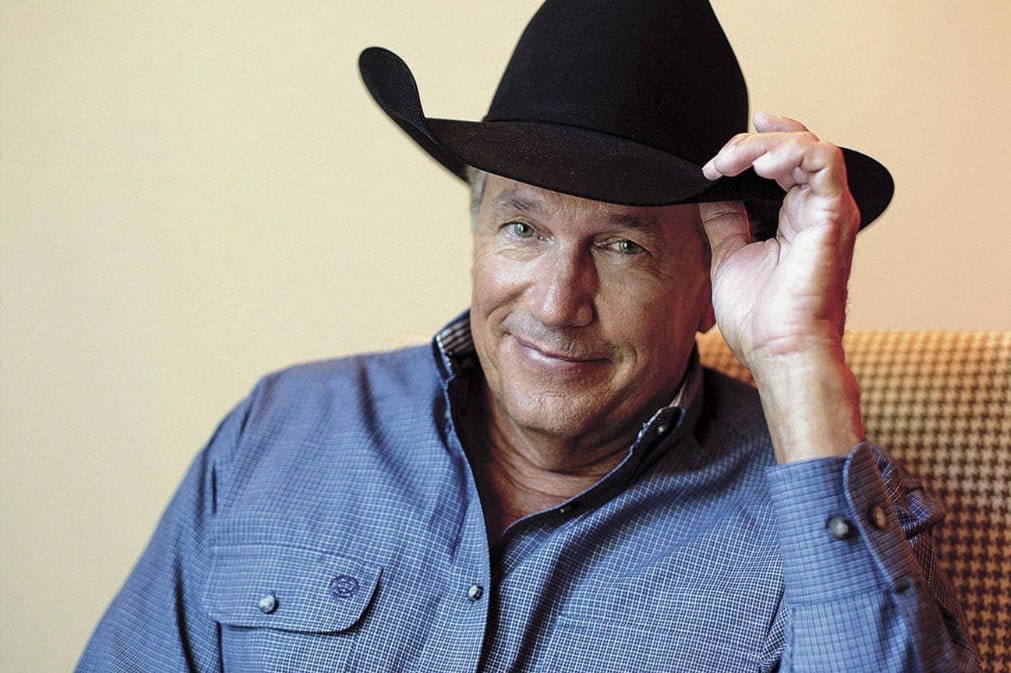
About the song
There are artists who follow trends, and then there are artists who *define* them. **George Strait** belongs firmly in the latter category. With more than 60 No. 1 hits and a career that has gracefully spanned generations, Strait remains a towering figure in American country music. His sound is unmistakable: clean, unembellished, and rooted in tradition. Unlike many of his contemporaries who veered toward pop influences, Strait has always stayed true to the heart of classic country—telling stories that feel both deeply personal and universally relatable.
One such story unfolds in the haunting ballad **”I Can Still Make Cheyenne”**, a song that captures the quiet pain of choosing the road over love. Released in 1996 on the *Blue Clear Sky* album, this track quickly became a fan favorite—not just for its melody, but for its emotional depth and understated storytelling.
The song opens with a cowboy calling home, likely after another long stretch on the rodeo circuit. His voice carries hope, maybe even relief, as he prepares to reconnect. But what he hears on the other end of the line changes everything: his partner has grown tired of waiting, tired of always coming second to his wandering lifestyle. She’s moving on.
Instead of protesting or expressing heartbreak, the cowboy simply replies, *”Well, that’s all right, baby, I can still make Cheyenne.”* That line—calm, almost cold—reveals a man who’s learned to live with disappointment. It’s not that he doesn’t care. It’s that he knows the rodeo is the only place he still feels at home, even as it costs him everything else.
What makes **”I Can Still Make Cheyenne”** so powerful is its restraint. There’s no dramatic breakdown, no soaring chorus. Just a quiet conversation and a resignation that hits harder than any shouted goodbye. Strait’s delivery is masterful—his voice steady, letting the lyrics do the emotional heavy lifting.
This song reflects a deeper truth about the American West and the cowboy mythos: the idea that freedom often comes at a steep emotional price. In choosing the open road, the cowboy gives up the comfort of companionship. It’s a sacrifice that feels noble on the surface but leaves a lingering ache just beneath.
In the end, **George Strait** doesn’t just sing country music—he *embodies* it. Songs like **”I Can Still Make Cheyenne”** remind us that some stories don’t need to be loud to be powerful. Sometimes, all it takes is a quiet goodbye, a dusty road, and a voice that knows how to tell the truth.
Video
Lyrics
Her telephone rang ’bout a quarter to nine
She heard his voice on the other end of the line
She wondered what was wrong this time
She never knew what his calls might bring
With a cowboy like him, it could be anything
And she always expected the worst
In the back of her mind
He said, it’s cold out here and I’m all alone
Didn’t make the short go again and I’m coming home
I know I’ve been away too long
I never got a chance to write or call
And I know this rodeo has been hard on us all
But I’ll be home soon
And honey is there somethin’ wrong
She said, don’t bother comin’ home
By time you get here I’ll be long gone
There’s somebody new and he sure ain’t no rodeo man
He said, I’m sorry it’s come down to this
There’s so much about you that I’m gonna miss
But it’s alright baby
If I hurry I can still make Cheyenne
Gotta go now baby
If I hurry I can still make Cheyenne
He left that phone danglin’ off the hook
Then slowly turned around and gave it one last look
Then he just walked away
He aimed his truck toward that Wyoming line
With a little luck he could still get there in time
And in that Cheyenne wind he could still hear her say
She said, don’t bother comin’ home
By time you get here I’ll be long gone
There’s somebody new and he sure ain’t no rodeo man
He said, I’m sorry it’s come down to this
There’s so much about you that I’m gonna miss
But it’s alright baby
If I hurry I can still make Cheyenne
Gotta go now baby
If I hurry I can still make Cheyenne
She never knew what his calls might bring
With a cowboy like him, it could be anything
And she always expected the worst
In the back of her mind